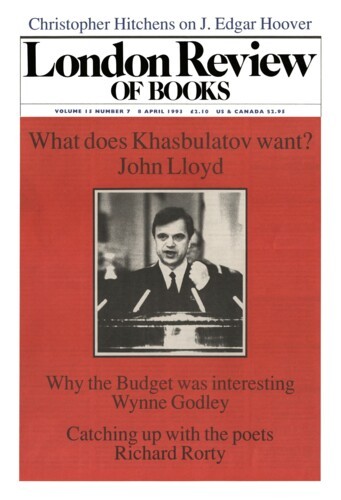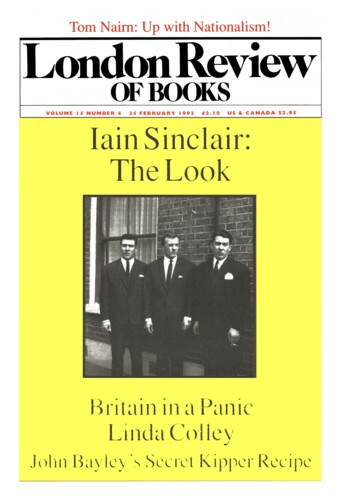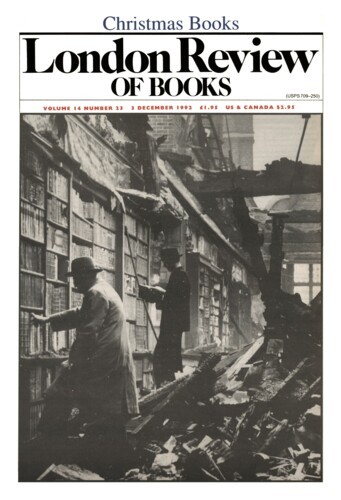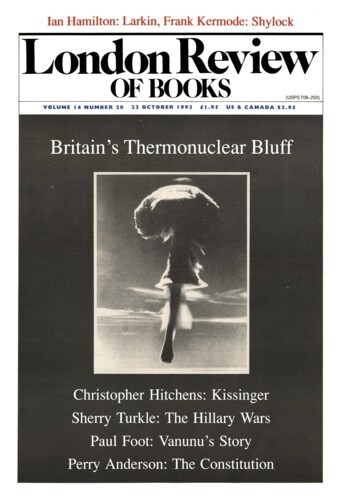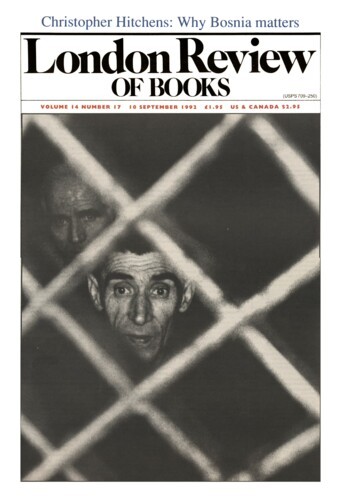Mary, Mary
Christopher Hitchens, 8 April 1993
Who can forget the moment in Chapter Six of Greenmantle when Richard Hannay penetrates the inner apartments of Colonel Ulric von Stumm and, with a thrill of horror, realises that there is something distinctly rum about the chief of Prussian Intelligence:
